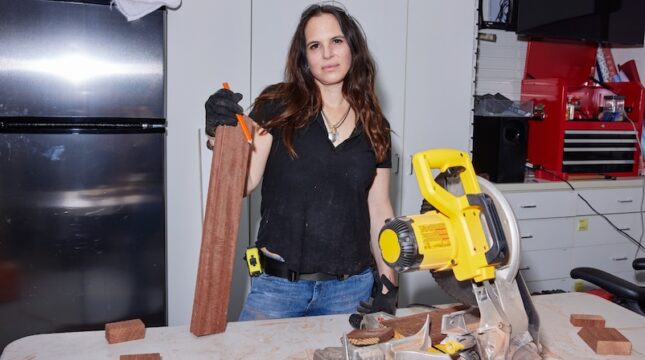What is a contractor license?
A contractor license is a certification given to contractors who meet at least the minimum standards required by their state or municipality. Depending on the state, if you take on home improvement or construction projects without it, you could face financial penalties, misdemeanor, or felony charges, including jail time.
In some states, a license is necessary only if you bid on a large project. For example, contractors in Alabama need a license for commercial or industrial projects worth more than $50,000 or residential contractor projects worth more than $10,000. You must get a license in Georgia to do work worth more than $2,500.
Curious about what it takes to get a contracting license in your state? We have guides for trades, including general contractors, handypersons, carpenters, electricians, HVAC technicians, landscapers, roofing, painters and plumbers.
Pros and cons of being a licensed contractor
Being a licensed contractor is great, but it can also have drawbacks. Here are some pros and cons to consider.
Benefits of getting a contractor license
Although some states don’t require licenses, you’ll find several advantages to having one. As a licensed contractor, you can:
- Legally complete different kinds of work
- Hire subcontractors to help with projects
- Increase profits by booking larger jobs and charging higher rates
- Offer a variety of services for residential and commercial customers
- Build credibility with customers by being licensed and insured
- Improve your skills, knowledge, and business understanding
Downsides to getting a contractor license
Contractor licensure has many benefits, but you must also consider the drawbacks. You must invest time and money for a contractor’s state license board exam and application fees. You may also need to document your work experience and complete a background check.
Another reason you may choose contracting without a license is that having a license can limit your work. For instance, after you get a specific license (like electrician or plumbing), you may be limited to taking jobs specific to your license, training and experience. Sometimes, despite the lower monetary caps, the variety of jobs available outweighs the need for a license.
What kind of projects can a contractor without a license do?
The type of projects you can do without a license varies by state. A handyperson typically handles many jobs below; however, some states require a handyperson to get a Home Improvement Contractor license.
Check with your state guidelines and local contracting work regulations on work types and monetary caps to ensure you don’t face fines or criminal charges. Typical tasks that may not require a license include:
1. Window treatments
The average homeowner or business owner may find installing blinds, shades, and window treatments challenging and time-consuming. You can usually install window treatments without a license if the project falls under the maximum dollar amount set by your state and doesn’t involve electrical work.
2. Painting
Some states allow you to paint without having a license or registration. For example, you can work as a painting contractor without a license on jobs in Arizona that pay less than $5,000, but California requires registration and licensing for painting jobs over $500.
3. Tiling
Handymen often install minor floor or wall tiles, but larger projects may require a licensed contractor. For instance, you could not tile and seal a swimming pool as an unlicensed contractor.
4. Carpet or flooring installation
Installation of new carpet or pulling out and replacing old flooring may also be exempt from a license. You can look into the International Certified Flooring Installers Association (CFI) to learn about career training and licensing requirements.
5. Minor concrete installation and repairs
Simple concrete tasks like pouring small walkways or patios often don’t require a license, but more extensive concrete pouring projects do. Similarly, patching small cracks generally doesn’t require a license.
6. Fence installation
Many states allow homeowners to build fences without a license, and they’ll certainly need help. However, larger or more complicated fencing (like electric or masonry fences) may require a contractor’s license.
7. Cabinet installation
In some states, installing pre-built cabinets may not require a license, but custom cabinetry work or significant alterations to existing cabinetry may require a licensed contractor.
8. Wall-mounted televisions
Installing a wall-mounted television to drywall is another task many homeowners and business owners may want to avoid handling themselves. Handypersons and contractors may complete the work without a license.
9. Junk hauling
Individuals and businesses can usually hire crews for garbage hauling and trash cleanup from their property, even those without licenses. However, depending on the scale of your operations, you may need certifications or permits for junk hauling and waste disposal.
10. Smaller jobs
In most states, you can perform minor contracting jobs without a license if it doesn’t involve changes to a structure or its electrical or plumbing work. Tasks like replacing outlets or light switches, small drywall holes or changing out a bathroom faucet can be done without a license.
However, larger projects or jobs worth more than a specific dollar amount voids unlicensed contracting work. Going beyond the scope allowed by your state is illegal.
Projects a licensed contractor can do
The list of projects that a licensed contractor can do is extensive. With a general contractor license, you can take on jobs like roofing or serving as a building contractor to build a new home or structure or remodel and renovate an existing one.
Since many states have a financial cap on the value of construction work you can do without a license, becoming a licensed contractor allows you to take on larger, more profitable projects.
It can also open up other trades in the construction industry that require licensing. Electrical contractors, HVAC technicians, plumbers, and other specialty contractors often require a separate license.
Deciding whether to get a contractor license
Depending on the work you want to do, you may find it beneficial to get a proper license. If you’re considering becoming a licensed contractor, there are many factors to consider.
The most important is what regulations are active in your area. If your state requires a contractor license for the work you want, you must pursue licensing.
Keep in mind there’s a difference between getting a professional license and registering your business. A business license lists you in the state registry. Professional licenses for contractors, however, require passing a competency test, demonstrating relevant work experience, verifying your financial records, and providing proof of general liability insurance.
It also depends on the services you want to provide. You can often operate without a contractor license if you stick to quicker, smaller-scale projects like handyperson work or general home repairs.





